A Guide to Laravel Security: Boosting Your App’s Security
June 8, 2023
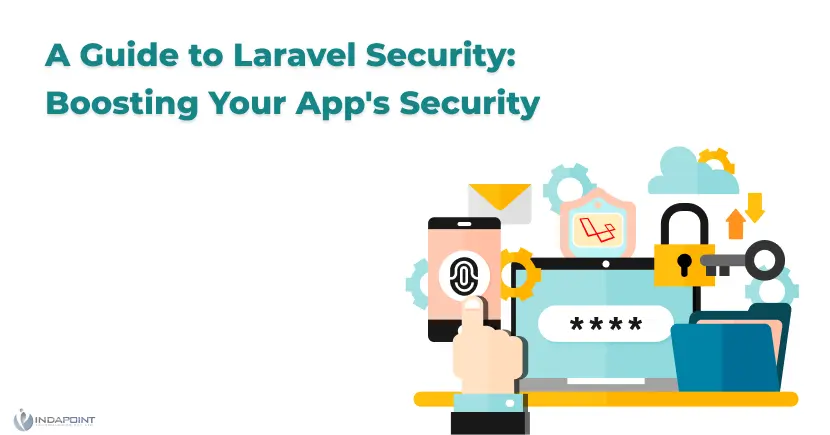
Laravel, a popular platform for web development, is known for its high performance and active community. Laravel has a pretty good security package, but no framework can claim to be 100 per cent secure. The good thing about security in Laravel is that the maintenance team will fix any loopholes as soon as they are discovered. As a developer, you must also pay attention to the security of your Laravel 5 application.
Laravel is a great framework for web development. It will not make your server secure but rather your application. Laravel’s features protect and clean information unless you are using Laravel for simple questions. This article will examine the common Laravel features that create a more secure digital environment.
Hashing passwords
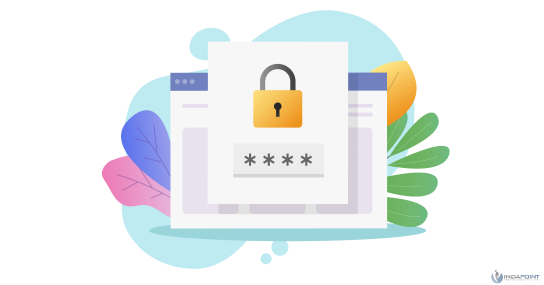 Laravel has a native hashing mechanism based on Bcrypt (which comes in two variants: Argon2i or Argon2id). Using the built-in classes for Laravel login ( LoginController ) and registration ( RegisterController ), you can enable Bcrypt as the default method of saving passwords and registering users.
Laravel has a native hashing mechanism based on Bcrypt (which comes in two variants: Argon2i or Argon2id). Using the built-in classes for Laravel login ( LoginController ) and registration ( RegisterController ), you can enable Bcrypt as the default method of saving passwords and registering users.
Session Management
Laravel’s API lets you access a wide range of databases and drivers. The most popular are file, cookie, array (enabled as a default in config/session.php), Memcached, and Reis. Laravel uses the driver by default because it is a versatile and lightweight option that can be used for many web apps. However, Memcached and Redis are recommended in larger production environments as they improve session performance.
You can see that much of the security work for Laravel is already done – exceptionally if you choose to use the default settings and do not require much customization. This is recommended in areas such as encryption.
Cross-Site Request Forgery (CSRF)
Cross-Site Request Forgery (CSRF), also known as CSRF, is a hacker technique used for years to convince users to perform actions they don’t want to. The hacker can get around the same original regulation prohibiting website interference.
Laravel keeps track of all user sessions and generates a CSRF token for each. Laravel uses the Form Classes Token Method by default. You can see both the token and a built-in CSRF filter in the source code.
The simplest way to explain CSRF protection would be that it makes sure that every request is coming from your web application development and not a potential XSS attack from a third party. The CSRF filters an HTTP error code if it detects a potentially harmful request.
Use best-in-class Laravel Coding standards
 Laravel adheres to the internal laravel code standards. This ensures that your factors will be composer compatible. Laravel does not impose any restrictions on the coding standards. Experts recommend following your project’s PSR-2 or PSR-4 codebase. SR-2 uses a single PHP style guide that results in consistent code formatting. PSR-4 specifies the requirements for fully automatic class loading using file trails.
Laravel adheres to the internal laravel code standards. This ensures that your factors will be composer compatible. Laravel does not impose any restrictions on the coding standards. Experts recommend following your project’s PSR-2 or PSR-4 codebase. SR-2 uses a single PHP style guide that results in consistent code formatting. PSR-4 specifies the requirements for fully automatic class loading using file trails.
This fully compliant program can be used with any other configuration for auto-downloading files. It also specifies the location of the auto-downloading files according to their structure.
SQL Injection
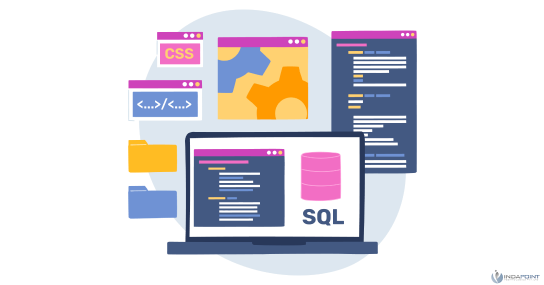 SQL Injection is one of the issues that could affect your system. The Eloquent ORM, part of Laravel, uses PDO binding to prevent SQL Injection. No one is allowed to modify the SQL query’s intent. For example, if a form searches for an email address and a SQL query has been changed, the results will include all table records.
SQL Injection is one of the issues that could affect your system. The Eloquent ORM, part of Laravel, uses PDO binding to prevent SQL Injection. No one is allowed to modify the SQL query’s intent. For example, if a form searches for an email address and a SQL query has been changed, the results will include all table records.
Hackers may improvise a new attack by modifying and inserting the query directly. For example, if you use a command such as “drop table users,” the system will delete the table automatically. This would not happen if you used a parameter binding for PDO or an unprocessed SQL query.
Input Sanitization
Laravel’s input validation and sanitisation address security vulnerabilities like SQL injection and XSS. Eloquent OrM’s PDO binding protects against SQL injections. It helps prevent SQL Injection attacks caused by malicious SQL Queries. This feature ensures that no client can alter the SQL queries intent. Laravel offers native protection against XSS. This feature protects your database and code. Any code that includes escape tags will be output as HTML.
Community Support & Release cycles
 It’s important to highlight the outstanding community support behind Laravel. The Laravel community has over 72,6K followers and is constantly updating the framework and fixing bugs. The Laravel team releases regular updates. Major ones are released yearly, and minor ones can be as frequent as once a week. Any vulnerabilities or bugs are addressed quickly, ensuring the framework’s stability. Laravel is one of the safest frameworks because of its dedicated team of developers, testers, and pen-testers.
It’s important to highlight the outstanding community support behind Laravel. The Laravel community has over 72,6K followers and is constantly updating the framework and fixing bugs. The Laravel team releases regular updates. Major ones are released yearly, and minor ones can be as frequent as once a week. Any vulnerabilities or bugs are addressed quickly, ensuring the framework’s stability. Laravel is one of the safest frameworks because of its dedicated team of developers, testers, and pen-testers.
Use in-built encryption
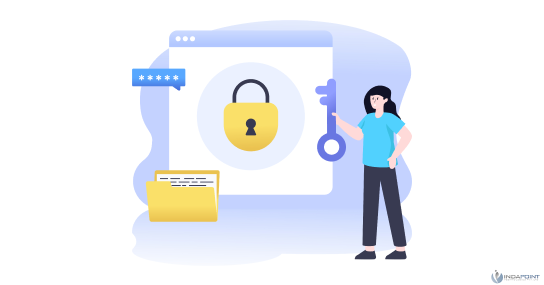 Laravel’s built-in encryption, like hashing passwords, is the best way to ensure your web application is secure. Therefore, using standard encryption instead of building your own is strongly recommended. Framework creators cannot guarantee security.
Laravel’s built-in encryption, like hashing passwords, is the best way to ensure your web application is secure. Therefore, using standard encryption instead of building your own is strongly recommended. Framework creators cannot guarantee security.
HTTP Sessions are destroyed and expire after a specific time
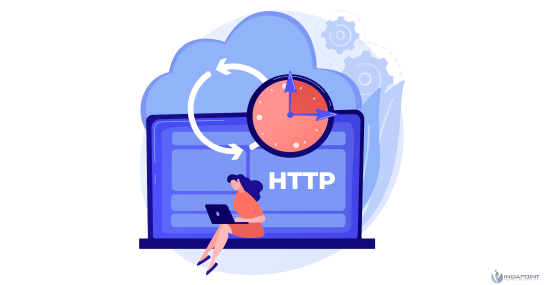 HTTP sessions contain a limited amount of information about app users. Therefore, you must destroy sessions following significant state changes to the web application, such as passwords or security updates. We recommend reading the Laravel documentation on session management for more information.
HTTP sessions contain a limited amount of information about app users. Therefore, you must destroy sessions following significant state changes to the web application, such as passwords or security updates. We recommend reading the Laravel documentation on session management for more information.
Check SSL/TLS Configuration
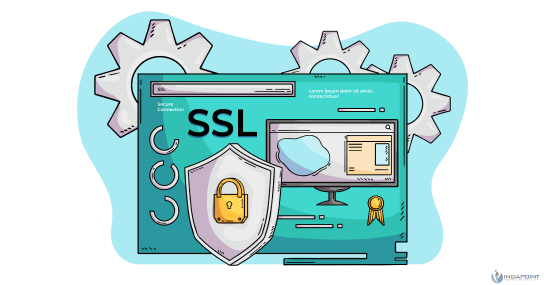 It is essential that you scan your Laravel Security every day. You should check if your SSL/TLS settings are accurate and current. You should also ensure you do not use an outdated TLS version or weak ciphers. It would help to use authentic security certificates and not weak keys. You may encounter many other issues; scanning regularly will help you quickly identify them.
It is essential that you scan your Laravel Security every day. You should check if your SSL/TLS settings are accurate and current. You should also ensure you do not use an outdated TLS version or weak ciphers. It would help to use authentic security certificates and not weak keys. You may encounter many other issues; scanning regularly will help you quickly identify them.
Conclusion
Laravel places a high priority on the safety of its applications. It has several features that protect against common vulnerabilities. These include input sanitization and session protection, CSRF Protection, and password hashing. The framework uses Bcrypt for hashing passwords. It also generates and validates CSRF tokens. You can rest easy knowing that your project will be safe with Laravel.




